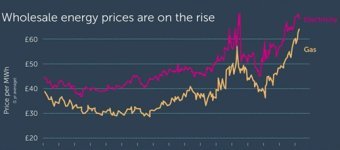Steve
Member
Choosing between an Electric Vehicle (EV), Plug-In Hybrid Electric Vehicle (PHEV), or a traditional Hybrid Electric Vehicle (HEV) involves evaluating various factors, especially when considering long-term ownership over 10+ years. Let's delve into the key aspects to help guide your decision.
Initial Purchase Price
HEVs: Typically, hybrids are much cheaper to buy compared to EVs and PHEVs.
PHEVs: Plug-in hybrids often come with higher purchase prices, comparable to pure electric cars. For instance, the Hyundai Ioniq hybrid costs around £24,000, while the plug-in hybrid and electric versions are priced at around £30,500.
EVs: Fully electric vehicles generally have higher upfront costs due to advanced battery technology.

Fuel and Maintenance Costs
HEVs: Hybrids use gasoline engines supplemented by small electric motors, offering improved fuel efficiency over traditional gasoline vehicles.
PHEVs: Plug-in hybrids can drive shorter distances, often around 30 to 40 miles, on battery power alone before switching to a gasoline engine. This allows for significant fuel savings if the vehicle is regularly charged.
EVs: Electric vehicles rely solely on battery power, eliminating fuel costs. They are up to 70% cheaper to operate compared to gasoline vehicles.
Resale Value
HEVs: Some hybrid models, like the Toyota Prius and Camry Hybrid, have proven to retain their value remarkably well.
PHEVs: Plug-in hybrid electric vehicles generally maintain better resale values compared to conventional hybrids due to their extended electric range.
EVs: Certain electric vehicles, such as the Nissan LEAF and Tesla Model X, experience significant depreciation over time.
Driving Experience and Convenience
HEVs: Hybrids offer a driving experience similar to traditional vehicles and do not require charging infrastructure.
PHEVs: Plug-in hybrids require regular charging to maximize fuel savings, which may necessitate changes in driving and fueling habits.
EVs: Electric vehicles require access to charging infrastructure, either at home or public stations, and may have limited range compared to gasoline vehicles.
Environmental Impact
HEVs: Hybrids offer reduced emissions compared to traditional gasoline vehicles but still rely on fossil fuels.
PHEVs: Plug-in hybrids provide the flexibility of electric driving for short trips, reducing emissions, with the backup of a gasoline engine for longer journeys.
EVs: Electric vehicles produce zero tailpipe emissions, offering the most environmentally friendly option among the three.
Conclusion
Your choice among an EV, PHEV, or HEV should align with your driving habits, access to charging infrastructure, environmental priorities, and financial considerations. If minimizing fuel costs and emissions is paramount, and you have reliable charging access, an EV might be the most suitable. For those seeking flexibility with occasional electric driving and extended range, a PHEV could be ideal. If you prefer a vehicle that doesn't require charging and offers improved fuel efficiency over traditional cars, an HEV may be the best fit.
Youtube
#ev cars #hybrdi cars #plug in hybrid cars #phev
Initial Purchase Price
HEVs: Typically, hybrids are much cheaper to buy compared to EVs and PHEVs.
PHEVs: Plug-in hybrids often come with higher purchase prices, comparable to pure electric cars. For instance, the Hyundai Ioniq hybrid costs around £24,000, while the plug-in hybrid and electric versions are priced at around £30,500.
EVs: Fully electric vehicles generally have higher upfront costs due to advanced battery technology.

Fuel and Maintenance Costs
HEVs: Hybrids use gasoline engines supplemented by small electric motors, offering improved fuel efficiency over traditional gasoline vehicles.
PHEVs: Plug-in hybrids can drive shorter distances, often around 30 to 40 miles, on battery power alone before switching to a gasoline engine. This allows for significant fuel savings if the vehicle is regularly charged.
EVs: Electric vehicles rely solely on battery power, eliminating fuel costs. They are up to 70% cheaper to operate compared to gasoline vehicles.
Resale Value
HEVs: Some hybrid models, like the Toyota Prius and Camry Hybrid, have proven to retain their value remarkably well.
PHEVs: Plug-in hybrid electric vehicles generally maintain better resale values compared to conventional hybrids due to their extended electric range.
EVs: Certain electric vehicles, such as the Nissan LEAF and Tesla Model X, experience significant depreciation over time.
Driving Experience and Convenience
HEVs: Hybrids offer a driving experience similar to traditional vehicles and do not require charging infrastructure.
PHEVs: Plug-in hybrids require regular charging to maximize fuel savings, which may necessitate changes in driving and fueling habits.
EVs: Electric vehicles require access to charging infrastructure, either at home or public stations, and may have limited range compared to gasoline vehicles.
Environmental Impact
HEVs: Hybrids offer reduced emissions compared to traditional gasoline vehicles but still rely on fossil fuels.
PHEVs: Plug-in hybrids provide the flexibility of electric driving for short trips, reducing emissions, with the backup of a gasoline engine for longer journeys.
EVs: Electric vehicles produce zero tailpipe emissions, offering the most environmentally friendly option among the three.
Conclusion
Your choice among an EV, PHEV, or HEV should align with your driving habits, access to charging infrastructure, environmental priorities, and financial considerations. If minimizing fuel costs and emissions is paramount, and you have reliable charging access, an EV might be the most suitable. For those seeking flexibility with occasional electric driving and extended range, a PHEV could be ideal. If you prefer a vehicle that doesn't require charging and offers improved fuel efficiency over traditional cars, an HEV may be the best fit.
Youtube
#ev cars #hybrdi cars #plug in hybrid cars #phev
